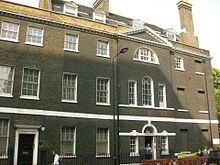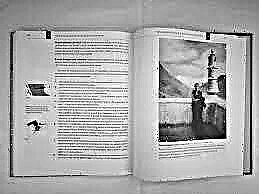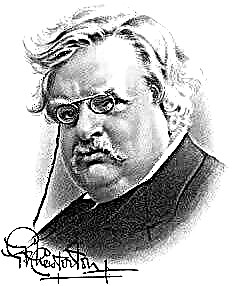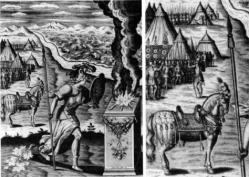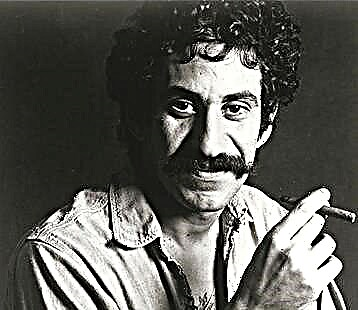The author gathered together oral evidence, his own observations and historical works of his time and based on them he recreated the life of French society at the end of the XVI - the first half of the XVII century, presenting it in the form of a kaleidoscope of short stories, the heroes of which were 376 characters, including crowned persons.
Henry IV, if he had reigned in peacetime, he would never have become so famous, for he would have "mired in voluptuous joys." He was not too generous, he did not always know how to be grateful, he never praised anyone, “but not to mention the sovereign sovereign who would love his people more”. Here's what they say about him: once a representative of the third estate, wanting to address the king with a speech, kneels down and bumps into a sharp stone that caused him such pain that he cannot stand it and cries out: “The louse is poisonous!” “Excellent!” - exclaims Henry and asks not to continue, so as not to spoil the glorious beginning of speech. Another time, Henry, passing through a village where he has to stop for lunch, asks to call to him some local wit. A peasant nicknamed Zabavnik is brought to him. The king sits him opposite himself, on the other side of the table, and asks: "Is it far from the womanizer to the mocker?" “Yes, between them, sovereign, only a table stands,” the peasant replies. Henry was very pleased with the answer. When Heinrich appoints de Sully the superintendent of finance, Sully boasting gives him an inventory of his property and swears that he intends to live solely on a salary. However, Sully soon begins to make numerous acquisitions. One day, welcoming the king, Sully stumbles, and Henry tells the courtiers around him that he is more surprised how Sully did not stretch to his full height, because from the magarich received by him he should be pretty dizzy. Henry himself was by nature a thief and took everything that came to his hand; however, he returned what was taken, saying that if he had not been a king, "he would have been hanged."
Queen Margot was beautiful in her youth, although she had "slightly drooping cheeks and a somewhat long face." There was no more loving woman in the world; for love notes, she even had a special paper, the edges of which were decorated with "emblems of victories in the field of love." “She wore large tansy with many pockets, each of which contained a box with the heart of a deceased lover; for when one of them was dying, she immediately took care to embalm his heart. ” Margarita quickly grew fat and bald very early, so she wore a chignon, and in her pocket - extra hair, so that she was always at hand. They say that when she was young, the Gascon nobleman Salignac fell madly in love with her, but she did not respond to his feeling. And then one day, when he reproaches her for her callousness, she asks if he agrees to accept the poison in order to prove his love. The Gasconson agrees, and Margarita personally gives him the strongest laxative. He swallows the potion, and the queen locks it in the room, vowing that he will return before the poison works. Salignac sat in the room for two hours, and since the medicine worked, when the door was unlocked, next to the Gascon "it was impossible to stand for a long time."
Cardinal de Richelieu at all times sought to advance. He went to Rome to receive the rank of bishop. Dedicated to him, the pope asks if he has reached the required age, and the young man answers in the affirmative. But after the ceremony, he goes to dad and apologizes to him for lying to him, "saying that he had reached the required years, although he had not yet reached them." Then dad said that in the future this boy will become a "big rogue." The cardinal hated the king’s brother and, fearing that he would not get the crown, because the king was in poor health, decided to enlist the favor of Queen Anne and help her in the birth of the heir. To begin with, he sows discord between her and Louis, and then through intermediaries offers her to let him "take the place of the king by her side." He assures the queen that while she is childless, everyone will neglect her, and since the king obviously will not live long, she will be sent back to Spain. If she has a son from Richelieu, then the cardinal will help her manage the state. The queen “resolutely rejected this proposal”, but she did not dare to push the cardinal completely, so Richelieu repeatedly made attempts to end up in the same bed with the queen. Having failed, the cardinal began to pursue her and even wrote the play “Miram”, where the cardinal (Richelieu) beat with sticks the main character (Buckingham). About how everyone was afraid of the cardinal, they tell such a story. A certain colonel, a completely respectable man, is driving along Tickton Street and suddenly feels that he is "backed up". He throws himself into the gate of the first house he comes across and eases himself right on the path. A run out homeowner makes a fuss. Here the servant of the colonel declares that his master serves the cardinal. The citizen resigned: "If you serve at His Eminence, you can ... wherever you want." Apparently, very many did not like the cardinal. Thus, the Queen Mother (Maria Medici, the wife of Henry IV), who believed in the predictions, “almost went mad with anger when she was assured that the cardinal would live in good health for a very long time.” It was said that Richelieu was very fond of women, but "was afraid of the king, who had an evil tongue." The famous courtesan Marion Delorme claimed that he had visited her twice, but paid only a hundred pistols, and she threw them back to him. Once, the cardinal tried to seduce Princess Mary and accepted her, lying in bed, but she got up and left. The cardinal was often seen with flies on his face: "he alone was not enough."
Wanting to amuse the king, Richelieu slipped him Saint-Mara, son of Marshal Dr. Effia. The king never loved anyone so dearly as Saint-Mara; he called him a "kind friend." During the siege of Arras, Saint-Map wrote twice a day to the king. In his presence, Louis talked about everything, so he was in the know. The cardinal warned the king that such carelessness could end badly: Saint-Map is still too young to be consecrated to all state secrets. Saint-Map was terribly angry at Richelieu. But even more angry with the cardinal was a certain Fontray, over whose ugliness Richelieu dared to laugh. Fontray participated in a plot that nearly cost Richelieu's life. When it became clear that the plot was uncovered, Fontray warned Saint-Mare, but he did not want to escape. He believed that the king would be condescending to his youth, and admitted everything. However, Louis did not spare either him or his friend de Tu: both folded their heads on the scaffold. This is not surprising, because the king loved that he hated the Saint-Map, and Saint-Map hated everything that the king loved; They converged in only one thing - in hatred of the cardinal.
It is known that the king, pointing to Treville, said: "Here is a man who will save me from the cardinal as soon as I want it." Treville commanded the horse musketeers who accompanied the king everywhere, and he picked them up. Treville was from Bearn, he has earned himself from junior ranks. They say that the cardinal bribed Trevil's cook: he paid her four hundred livres of pension so that she would spy on her master. Richelieu really did not want a king under the king whom he fully trusted. Therefore, he sent Mr. de Chavigny to Louis, so that he persuaded the king to expel Treville. But Treville serves me well and is devoted to me, Louis answered. But the cardinal serves you well and is devoted to you, and in addition he is still necessary for the state, Chavigny objected. Nevertheless, the cardinal's messenger did nothing. The cardinal was indignant and again sent Chavigny to the king, ordering him to say this: "Sovereign, this must be done." The king was unusually afraid of responsibility, as well as the cardinal himself, since the latter, occupying almost all important posts, could play a bad joke with him. “In a word, Trevilla had to get rid of.”
In love, King Louis began with his coachman, then he felt “a penchant for the kennel,” but he burned with special passion for de Liuin. The cardinal was afraid that the king would not be called Louis-Zaika, and he "was delighted when the chance came up to call him Louis the Just." Louis sometimes reasoned quite cleverly and even “triumphed” over the cardinal. But most likely, he just gave him this little pleasure. For some time, the king was in love with the maid of honor of the Queen, Mrs. Otfor, which, however, did not prevent him from using the fireplace tongs to get a note from this lady's corsage, as he was afraid to touch her breast with his hand. The king’s love affairs in general were “worn out”, because of all his feelings, jealousy was most characteristic of him. He was terribly jealous of Madame d'Otfort to d'Egillon-Vasse, although she assured him that he was her relative. And only when the expert on the genealogy of Dr. Ozier, knowing what was the matter, confirmed the words of the courtly beauty, did the king believe her. With Madame Dr. Otfor Louis often talked "about horses, dogs, birds and other similar subjects." And I must say that the king was very fond of hunting. In addition to hunting, he “knew how to make leather trousers, snares, nets, arquebuses, minting a coin”, grew early green peas, made window frames, shaved well, and was also a good pastry chef and gardener.

